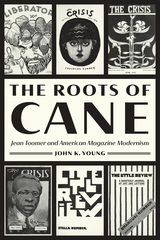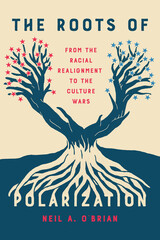6 start with P start with P
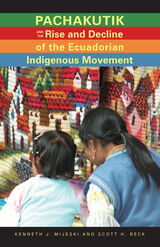
The mobilization of militant indigenous politics is one of the most important stories in Latin American studies today. In this critical work, Kenneth J. Mijeski and Scott H. Beck examine the rise and decline of Ecuador’s leading indigenous party, Pachakutik, as it tried to transform the state into a participative democracy.
Using in-depth interviews with political activists, as well as a powerful statistical analysis of election results, the authors show that the political election game failed to advance the causes of Ecuador’s poor or the movement’s own indigenous supporters. Pachakutik and the Rise and Decline of the Ecuadorian Indigenous Movement is an extraordinarily valuable case study of Ecuador’s indigenous movement and the challenges it still faces.
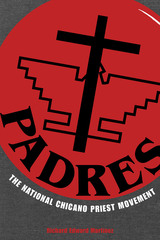
From the 1848 Treaty of Guadalupe Hidalgo to the 1960s, Mexican American Catholics experienced racism and discrimination within the U.S. Catholic church, as white priests and bishops maintained a racial divide in all areas of the church's ministry. To oppose this religious apartheid and challenge the church to minister fairly to all of its faithful, a group of Chicano priests formed PADRES (Padres Asociados para Derechos Religiosos, Educativos y Sociales, or Priests Associated for Religious, Educational, and Social Rights) in 1969. Over the next twenty years of its existence, PADRES became a powerful force for change within the Catholic church and for social justice within American society.
This book offers the first history of the founding, activism, victories, and defeats of PADRES. At the heart of the book are oral history interviews with the founders of PADRES, who describe how their ministries in poor Mexican American parishes, as well as their own experiences of racism and discrimination within and outside the church, galvanized them into starting and sustaining the movement. Richard Martínez traces the ways in which PADRES was inspired by the Chicano movement and other civil rights struggles of the 1960s and also probes its linkages with liberation theology in Latin America. He uses a combination of social movement theory and organizational theory to explain why the group emerged, flourished, and eventually disbanded in 1989.
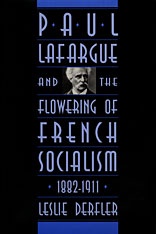
Paul Lafargue, the disciple and son-in-law of Karl Marx, helped to found the first French Marxist party in 1882. Over the next three decades, he served as the chief theoretician and propagandist for Marxism in France. During these years, which ended with the dramatic suicides of Lafargue and his wife, French socialism, and the Marxist party within it, became a significant political force.
In an earlier volume, Paul Lafargue and the Founding of French Marxism, 1842-1882, Leslie Derfler emphasized family identity and the origin of French Marxism. Here, he explores Lafargue's political strategies, specifically his break with party co-founder Jules Guesde in the Boulanger and Dreyfus episodes and over the question of socialist-syndicalist relations. Derfler shows Lafargue's importance as both political activist and theorist. He describes Lafargue's role in the formulation of such strategies as the promotion of a Second Workingmen's International, the pursuit of reform within the framework of the existent state but opposition to any socialist participation in nonsocialist governments, and the subordination of trade unionism to political action. He emphasizes Lafargue's pioneering efforts to apply Marxist methods of analysis to questions of anthropology, aesthetics, and literary criticism.
Despite the crucial part they played in the social and political changes of the past century and the heritage they left, the first French Marxists are not widely known, especially in the English-speaking world. This important critical biography of Lafargue, the most audacious of their much maligned theorists, enables us to trace the options open to Marxist socialism as well as its development during a critical period of transition.

An engaging look at one of English history and literature’s most compelling, complicated, and talented figures, Percy Bysshe Shelley will be a valuable contribution to our understanding of the man and his work.
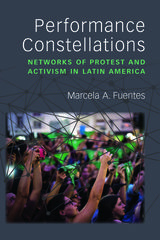
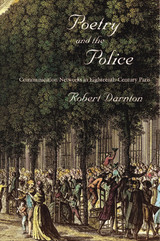
“We are given a vivid sense of how songs were circulated and performed on the streets of Paris…Darnton has opened up another rich vein of research in the eighteenth century.” —Times Literary Supplement
In spring 1749, François Bonis, a medical student in Paris, found himself unexpectedly hauled off to the Bastille for distributing an “abominable poem about the king.” So began the Affair of the Fourteen, a police crackdown on ordinary citizens for unauthorized poetry recitals. Why was the official response to these poems so intense?
In this captivating book, Robert Darnton follows the poems as they passed through several media: copied on scraps of paper, dictated from one person to another, memorized and declaimed to an audience. But the most effective dispersal occurred through music, when poems were sung to familiar tunes. Lyrics often referred to current events or revealed popular attitudes toward the royal court. The songs provided a running commentary on public affairs, and Darnton brilliantly traces how the lyrics fit into song cycles that carried messages through the streets of Paris during a period of rising discontent. He uncovers a complex communication network, illuminating the way information circulated in a semi-literate society.
This lucid and entertaining book reminds us of both the importance of oral exchanges in the history of communication and the power of “viral” networks long before our internet age.
READERS
Browse our collection.
PUBLISHERS
See BiblioVault's publisher services.
STUDENT SERVICES
Files for college accessibility offices.
UChicago Accessibility Resources
home | accessibility | search | about | contact us
BiblioVault ® 2001 - 2024
The University of Chicago Press




